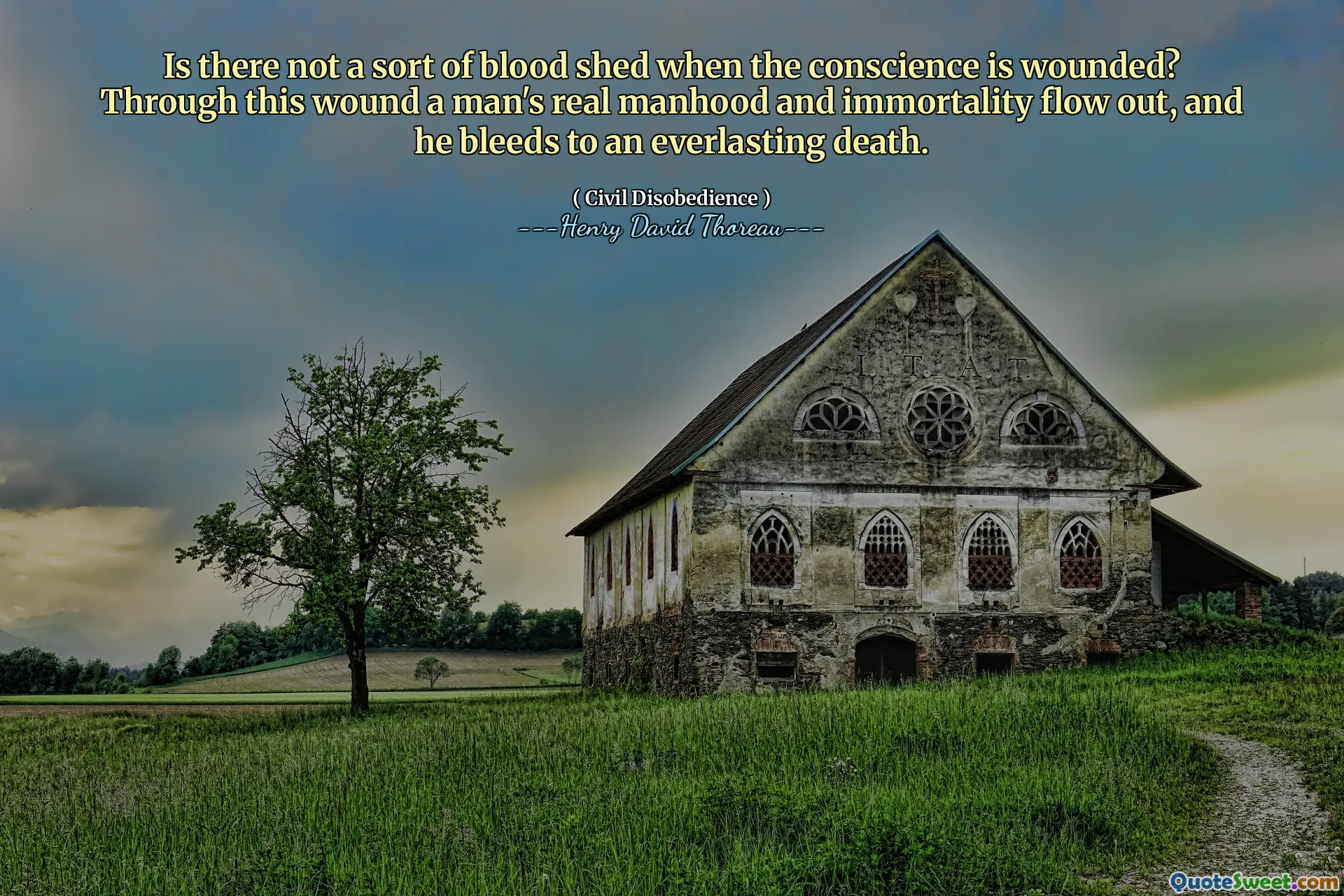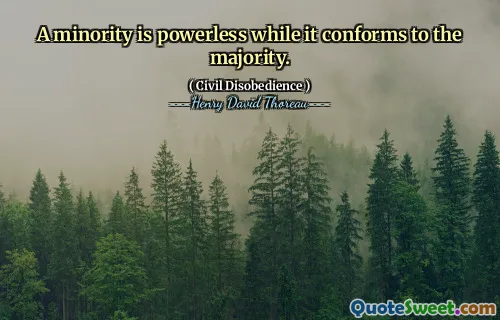
Is there not a sort of blood shed when the conscience is wounded? Through this wound a man's real manhood and immortality flow out, and he bleeds to an everlasting death.
The quote highlights the profound internal conflict that occurs when one's conscience is challenged or wounded. It suggests that moral and ethical sensibilities are akin to a vital part of our being that, when hurt, causes a form of spiritual bleeding. This bleeding is not physical, but it resonates deeply within the soul, revealing a person's core identity and integrity. Thoreau emphasizes that true manhood and a sense of immortality are intertwined with our moral convictions. When these convictions are compromised or challenged, it feels as though part of our very essence is drained away, leading to a form of everlasting death—one where the spirit remains alive in name, but lost in meaning and vitality.
This perspective calls us to recognize the importance of living according to our conscience, understanding that moral wounds are significant. They expose our vulnerabilities and reveal our innermost truths. In a society rife with moral pitfalls, staying true to one's conscience often requires courage, as it can lead to internal suffering by confronting uncomfortable truths. Yet this suffering is a testament to the strength of moral integrity, suggesting that true manhood is reflected not in external achievements but in the fidelity to moral principles, even at the expense of personal comfort.
Overall, the quote serves as a reminder that inner moral battles are powerful and vital. They shape our character and determine the authenticity of our existence. Protecting our conscience is crucial because compromising it is equivalent to a spiritual death—a loss that cannot be undone and that leaves a lasting mark on our soul's continuity.
- Henry David Thoreau, Civil Disobedience











